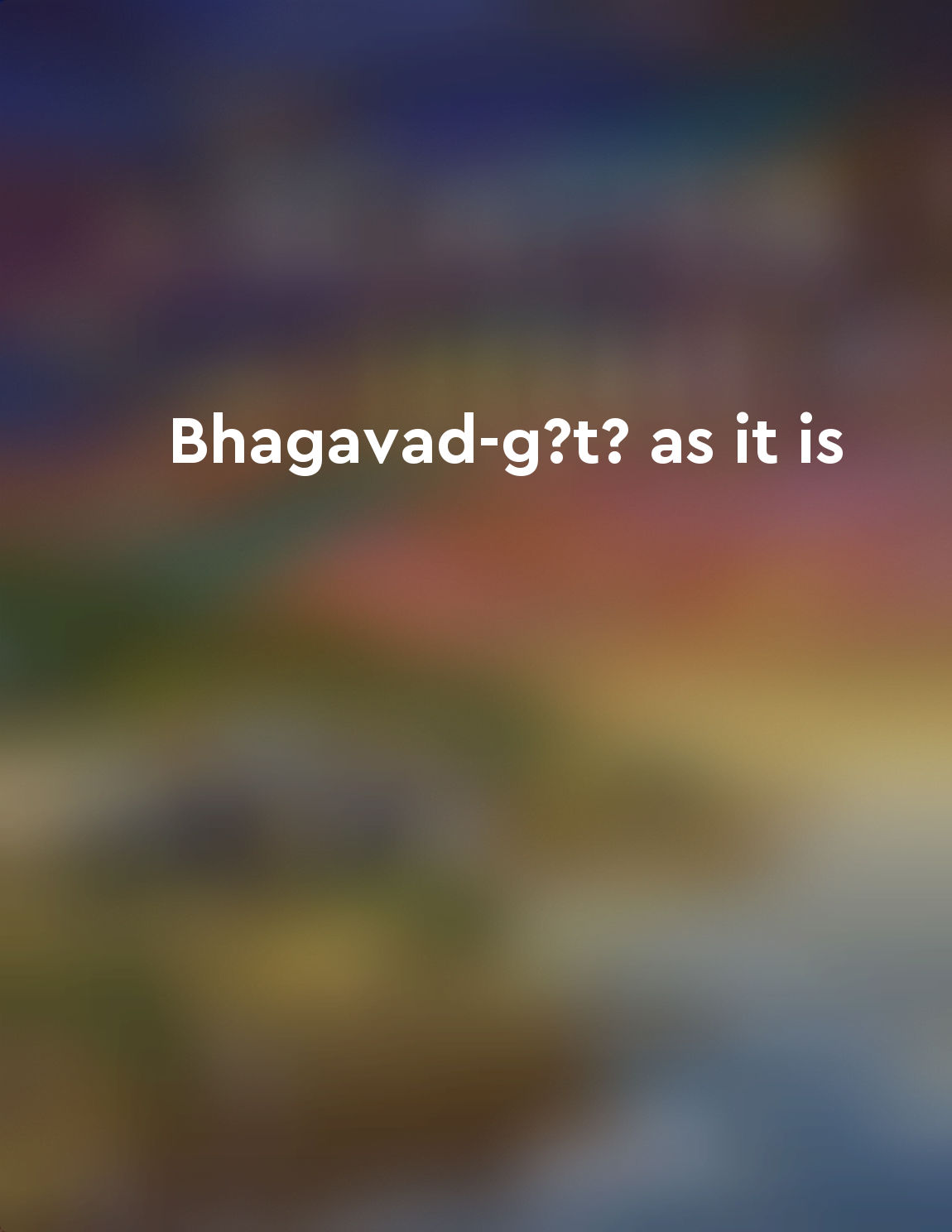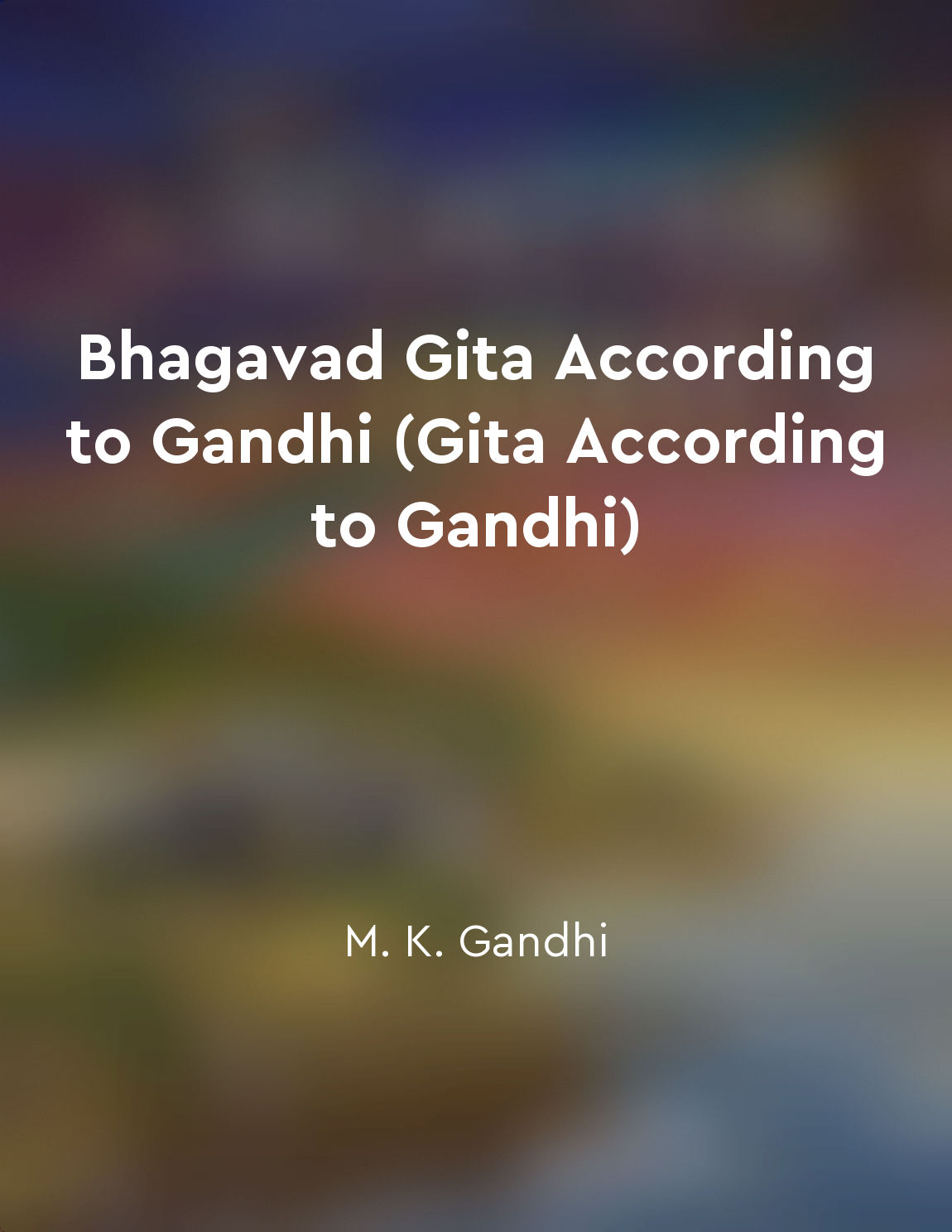Surrender to the divine will from "summary" of Bhagavad Gita According to Gandhi (Gita According to Gandhi) by M. K. Gandhi
The concept of surrender to the divine will is a central theme in the Bhagavad Gita, as expounded by Lord Krishna to Arjuna on the battlefield of Kurukshetra. It is the idea that one must relinquish the ego and personal desires in order to align oneself with the higher purpose or plan of the universe. This surrender is not passive resignation, but an active acceptance of whatever comes as the will of the divine. According to Gandhi, surrender to the divine will is the ultimate act of faith and trust in God. It requires a deep sense of humility and a willingness to let go of one's own attachments and preferences. By surrendering to the divine will, one acknowledges that there is a greater force at work in the world, beyond our limited understanding. Gandhi believed that surrendering to the divine will is a powerful form of liberation, as it frees us from the burden of trying to control every aspect...Similar Posts
Accept yourself and others with kindness
To truly accept ourselves and others with kindness is a radical act of love and liberation. It is a practice that requires us t...
Nurture relationships with love and understanding
To truly nurture relationships with love and understanding, it is essential to approach interactions with an open heart and a w...
Geeta emphasizes the importance of selfdiscipline and self-control
The concept of self-discipline and self-control is a central theme in the teachings of the Bhagavad Gita. The text emphasizes t...
Treat all beings with respect and compassion
Treating all beings with respect and compassion is a core teaching in the Buddhist tradition. This principle stems from the bel...

Practice of meditation
The process of meditation recommended in the Bhagavad-gītā is a practical means of achieving a higher state of consciousness. T...
Krishna's guidance on duty
In the midst of the battlefield, Arjuna faced a moral dilemma as he prepared to fight in a war against his own kin. Overwhelmed...
The Law of Least Effort encourages us to flow with the natural rhythm of life
The Law of Least Effort is based on the idea that nature functions effortlessly, with minimal waste and maximum effectiveness. ...
Material possessions are fleeting, but spiritual wealth is eternal
In the material world, possessions come and go. They are temporary, subject to decay and loss. Yet, in the realm of the spirit,...

Let go of attachments and aversions
The Bhagavad Gita teaches us to let go of attachments and aversions. In other words, we must learn to detach ourselves from the...

Find wisdom in the teachings of the sages
Seek wisdom in the teachings of the sages, for they hold the key to unlocking the mysteries of the universe. Through their word...
